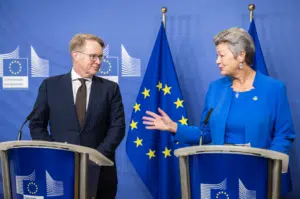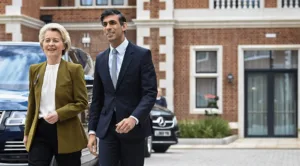Brussels – Cooperation between the European Union and the United Kingdom resumed after Brexit in sector after sector. The time has come for border management with the agreement between Frontex and British authorities on border crossings in the Channel by small boats carrying migrants. “Working agreements are an extremely useful tool for cooperation between Frontex and partner country authorities in key areas of interest related to combating irregular migration and cross-border crimes,” commented Commissioner for Home Affairs and Migration Ylva Johansson.

The formal ceremony agreement is scheduled for early afternoon today (Feb. 23) in the presence of Frontex Executive Director Hans Leijtens and Commissioner Johansson. However, European Commission officials already indicated some elements of the understanding based on the dialogue carried out in recent months by Commission President Ursula von der Leyen and UK Prime Minister Rishi Sunak. It is the pillar for a “long-term framework for close cooperation” in border management and countering irregular migration and cross-border crime “in full respect of the EU’s and the UK’s international human rights obligations.” In the short term, this joint work could include “developing situational awareness of migration routes and combating document fraud.” Discussions between the two sides will intensify in the coming months “and beyond” to “agree on detailed operational and cooperation plans involving a wide range of joint activities,” especially on risk analysis, information exchange, training, sharing of expertise in the area of repatriation and border management, and technical and operational cooperation. Of particular note is the “possibility” of deploying personnel and liaison officers “on both sides” of the Channel “for observation, coordination, or advisory purposes,” with the aim of “further enhancing the effectiveness of this cooperation between the EU and the UK.”

From left: European Commission President Ursula von der Leyen and UK Prime Minister Rishi Sunak
However, there was no reference to the often-expressed misgivings from Brussels about London’s migration policy. Only a year ago, Commissioner Johansson defined a possible violation of international agreements and the Geneva Convention, the bill providing that anyone illegally entering the UK be placed in detention and then expelled, either to the country of origin or to a third “safe” country, such as Rwanda. The European Court of Human Rights (ECHR) rejected the April 2022 agreement between London and Kigali and, in a ruling on June 14, 2022, blocked the departure of a flight for the Rwandan capital with seven asylum seekers on board.
English version by the Translation Service of Withub




